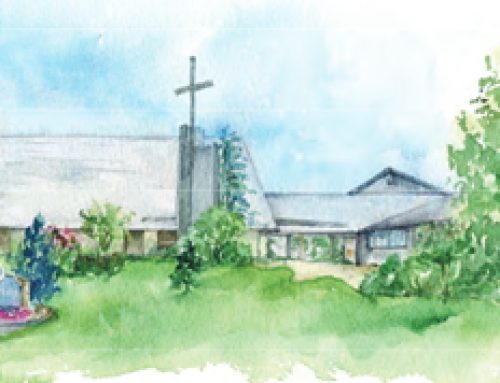Second Sunday of Lent
“Fasting makes sense if it really chips away at our security, and as a consequence, benefits someone else, if it helps us cultivate the style of the good Samaritan who bent down to his brother in need and took care of him.”
POPE FRANCIS
FROM THE PASTOR’S DESK
Dear Parishioners,
The apostle Peter is one of the most vivid characters in the New Testament— bold, decisive, outspoken, and often wrong. At key points of the gospel narrative, Peter is the first one to speak, the first one to act, and the first one to be corrected. At Caesarea Philippi he advises Jesus to avoid the cross, and therefore receives the rebuke, “Get behind me, Satan.” At the Last Supper, he boasts that he is ready to die with Jesus, only to hear Jesus say that Peter will deny him three times at cockcrow. And in today’s gospel, as Jesus is transfigured before the disciples, Peter again steps forward with a plan. He wants to set up tents for Jesus, Moses, and Elijah, so that they can remain in the glory on the mountain. But the text tells us that while he is still speaking, his words are drowned out by the voice of God that thunders from a cloud.
Peter routinely chooses the wrong response. But his errors are recorded in the gospels not to diminish him but to instruct us. We are meant to learn from Peter’s mistakes. What are we to learn today in this gospel of the Transfiguration? This gospel would have us understand that awe must precede action. When Jesus is transfigured, Peter is ready to take charge. He steps forward and begins to speak even as he looks around for tent material. But Peter’s plan is premature. It is a half-baked idea without a foundation, and that is why the voice of God cuts him off to proclaim, “This is my beloved son. Listen to him.” Before we act, we must listen. Before we begin to execute our plan, we must take in the glory of God. The Transfiguration reminds us that God’s glory and power abide deep within our lives and that God’s presence is available to us if we look below the surface of our experience. The fumblings of Peter are meant to warn us that before we take charge, we need to embrace God’s glory.
All of us must make decisions in life and set goals for ourselves. What career do I want to follow? What kind of money do I want to make? What kind of values do I want to pass on to my children? But this gospel says that before we set out to realize our goals, we should measure them against the holiness of God that pulsates below the surface issues that often determine our choices. That holiness reveals the importance of generosity, simplicity, and service to the poor and the oppressed. When the people we love are in trouble, we all want to fix things. When our children’s marriage is under stress, when a friend develops cancer, when our parents are coping with depression, we want to step in and make things better. But this gospel tells us that before we take charge, we need to rest in the truth that God’s glory already surrounds those that we love, and that God is working in their lives. Then, only after we appreciate that truth, can we decide how many demands should we make, how much advice should we give, and how much should we simply stand with those that we love and give support. When we are hurt or disappointed by someone, it is easy to jump into action. We can be quick to retaliate and get even. But this gospel tells us that, before we jump, we need to listen to the God who speaks to us from the cloud. God’s voice reminds us how blessed we are, how much we are loved, and how we are called to love our enemy.
There is no doubt that Jesus wants us to do what is right. But the example of Peter reminds us that awe must precede action and listening must inform deciding. Yes, we are to act. But we must take in God’s glory before we take up God’s service.
Peace,
Fr. Monteleone
To read the complete bulletin click here



